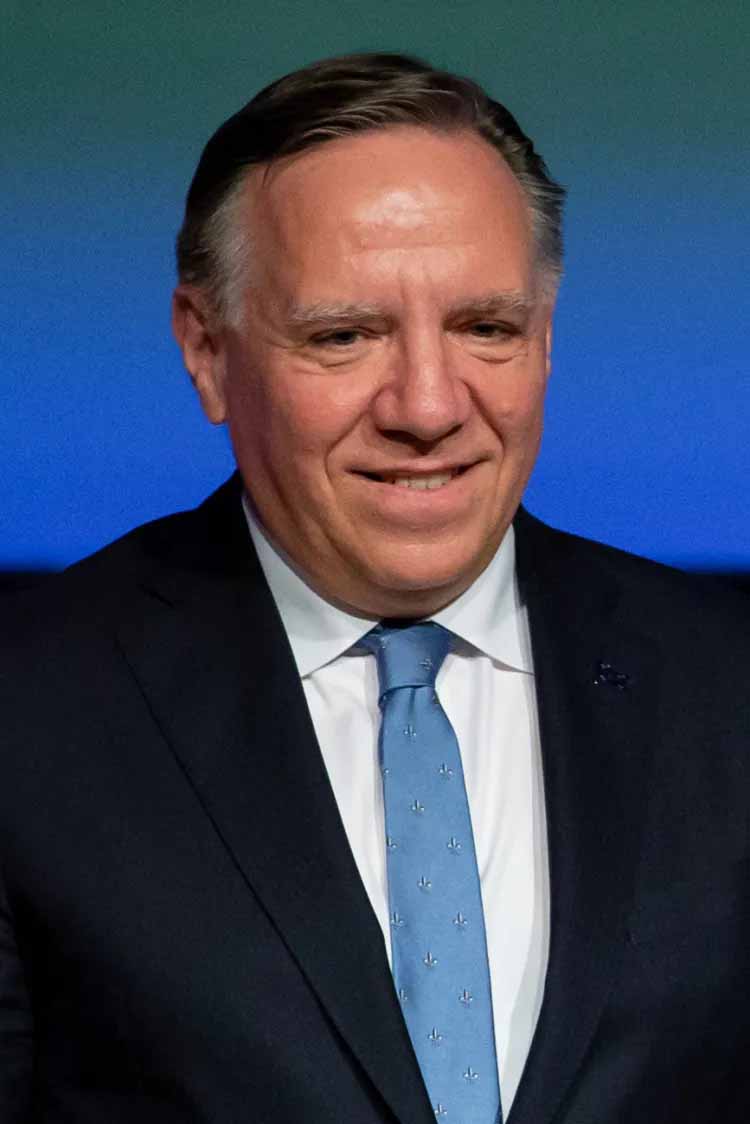Quebec Premier François Legault has sparked fresh controversy by proposing a ban on public prayer, citing concerns over maintaining secularism in the province. Speaking in Quebec City during a year-end address, Legault expressed his intent to outlaw prayer in public spaces, including schools, parks, and streets. He also indicated that he is open to invoking the notwithstanding clause to ensure the measure’s implementation.
The premier’s comments followed a report in La Presse detailing instances of prayer and religious practices at Saint-Maxime School in Laval, Quebec. The report alleged that some teachers had incorporated religious behaviors into their interactions with students, including prayers conducted during class. These allegations have reignited debates over secularism in Quebec schools, prompting both political and public scrutiny.
Legault was unequivocal in his stance, stating, “Seeing people praying in the streets, in public parks, is not something we want in Quebec.” He emphasized the importance of preserving Quebec’s secular values, declaring, “We will fight, and we will never, never accept that people try to not respect the values that are fundamental to Quebec.”
Calls for Strengthened Secularism Laws
The controversy has prompted Quebec’s Education Minister, Bernard Drainville, to propose new legislation aimed at reinforcing secularism in the school system. Drainville criticized the reported incidents, describing them as contrary to Quebec’s values. “Students praying in the classroom, hallways used as prayer spaces—this is not our Quebec,” he stated. While details of the proposed legislation remain unclear, Drainville assured that the government is committed to addressing the issue.
The Education Ministry had already been monitoring 17 schools for potential breaches of the province’s secularism law, Bill 21. This law, introduced in 2019, prohibits public-sector workers in positions of authority from wearing religious symbols. Recent reports of religious practices in schools have raised concerns that such incidents may reflect a deeper, systemic issue.
Opposition and Community Reactions
Opposition parties, including the Liberal Party and Québec Solidaire, have expressed cautious support for potential legislative amendments to strengthen secularism. However, they have also urged the government to address broader inequities within Quebec’s school system. Québec Solidaire co-spokesperson Ruba Ghazal emphasized the need to tackle underlying disparities, while Parti Québécois Leader Paul St-Pierre Plamondon claimed that concerns over “Islamist infiltration” in schools have been stifled by fear of being labeled racist.
Muslim advocacy groups have condemned Legault’s remarks, describing them as discriminatory and divisive. The Canadian Muslim Forum released a statement criticizing the premier’s rhetoric, asserting that it unfairly targets Muslim Quebecers. “Every day seems to bring new instances of discrimination against Quebecers who practise Islam,” the statement read.
Broader Implications for Quebec
This latest development highlights the ongoing tension between Quebec’s commitment to secularism and the rights of its diverse communities. Critics argue that the government’s focus on religious practices distracts from pressing issues such as educational inequities and systemic discrimination. Proponents of stricter secularism laws contend that such measures are necessary to protect Quebec’s cultural identity and values.
As debates continue, the provincial government faces mounting pressure to balance secularism with inclusivity, ensuring that Quebec’s diverse population feels respected and represented.

